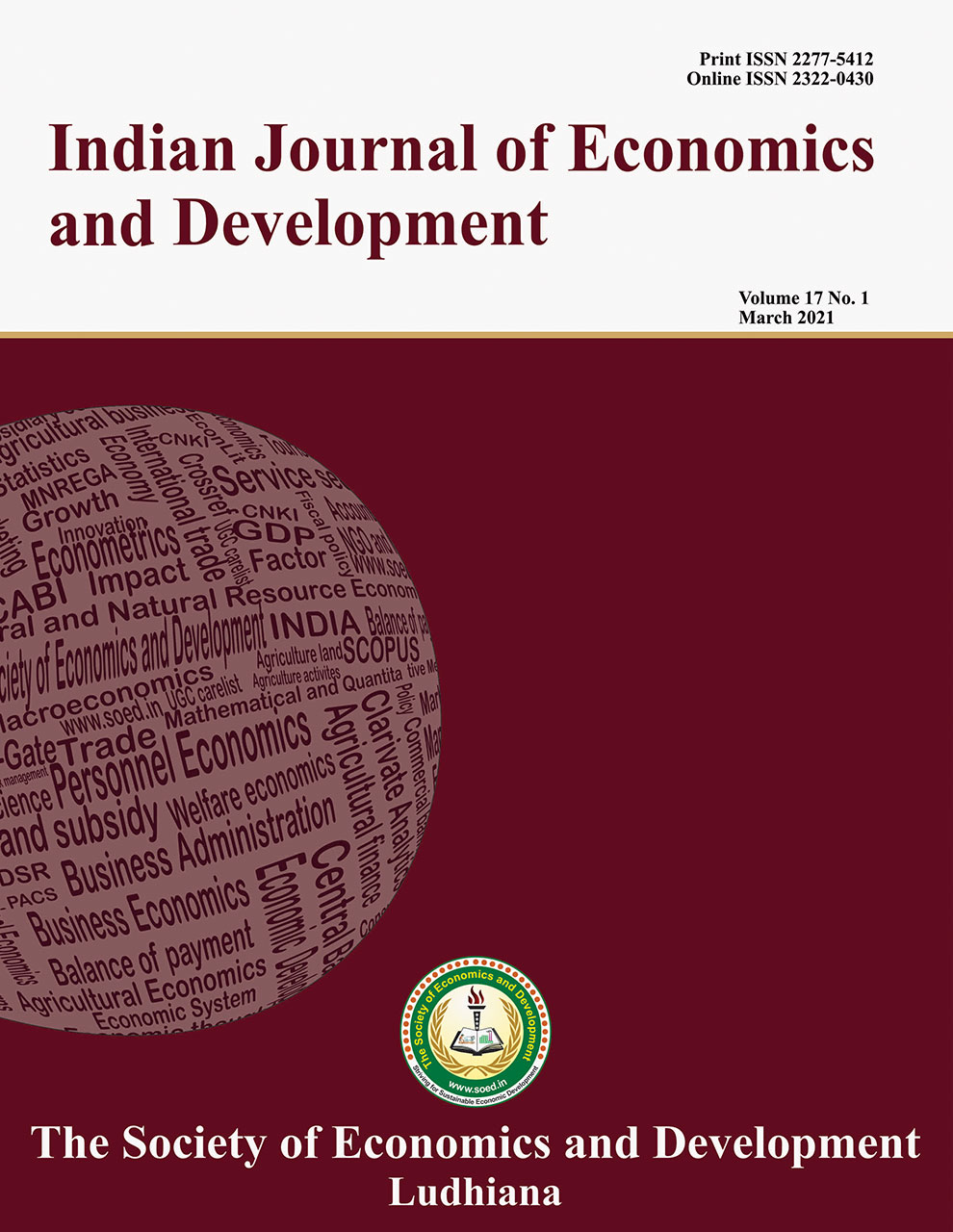Assessing Total Factor Productivity in Rice Production: Challenges and Opportunities in the Indo-Gangetic Plain: 25132

Price: ₹ 1000
https://doi.org/10.35716/IJED-25132
Author: Adrita Dam, Soumitra Chatterjee, Sunil Naik, Pramod Kumar
Author Address: Division of Agricultural Economics, ICAR-IARI, New Delhi-110012 (Delhi)
Abstract
Rice
(Oryza sativa L.) serves as a staple food for over half of the global
population. However, productivity in the Indo-Gangetic Plain (IGP) has
stagnated despite initial gains from the Green Revolution. This study analysed
the Total Factor Productivity (TFP) of rice in Punjab, Haryana, Uttar Pradesh,
Bihar, and West Bengal from 1970 to 2020 using the Divisia Tornqvist-Theil and
DEA-Malmquist indices. Results indicated a decline in TFP Punjab (-0.27 per
cent) and Haryana (-0.18 per cent) due to high production costs and unsustainable
practices. In comparison, Uttar Pradesh recorded a 1.28 per cent increase
driven by improved irrigation and infrastructure. Socio-economic factors,
including public expenditure and labour availability, significantly influenced
TFP. Promoting sustainable practices, enhancing resource efficiency, and
increasing R&D investment were essential to revitalize rice productivity
and ensure food security in the IGP.
Keywords:
Indo-Gangetic
Plain (IGP), rice production, socio-economic factors, Total Factor Productivity
(TFP).
JEL Codes: Q01, Q12, Q16, Q18
Description
Indian Journal of Economics and Development
https://doi.org/10.35716/IJED-25132
Impact Factor: 0.2 (2025)
NAAS Score: 6.30 (2025)
Indexed in Scopus (SJR = 0.15)



